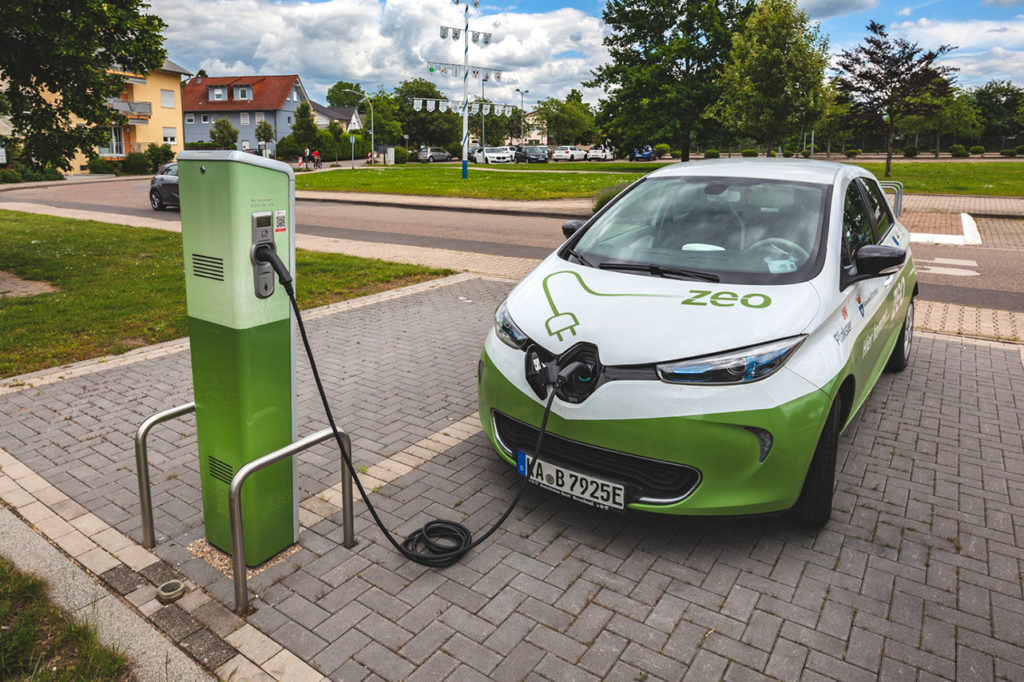
Welcome dear reader! This is already our fifth TOMP-interview. For this edition, we had an interesting conversation with Lukas Böhm, the co-founder of evemo, a software platform designed to run sustainable sharing services for cars, bikes, scooters, and more. The platform enables all kinds of users – municipalities, enterprises, or neighbourhoods – to share a variety of vehicles. The strength of evemo lies in its coverage of all steps in the vehicle-sharing process, from registration to booking, keyless vehicle access, and billing. Some of their (predominantly German) clients include Regio.Mobil, MünsterlandRad, and Allround.
Lukas has recently joined the TOMP Working Group on behalf of evemo. Naturally curious, we wanted to learn more about their decision to adopt the TOMP-API, the implementation journey, and their expectations for TOMP.
Welcome, Lukas. Evemo has recently joined the TOMP Working Group. How have you discovered our data-standard?
We are currently engaged in a research project called OMI (Open Mobility Infrastructure), funded by the Federal Ministry of Education and Research in Germany. This project aims to develop a digital mobility infrastructure that also enhances mobility options in less densely populated areas. We focus on rural mobility to transition from motorised individual travel to demand-oriented solutions, integrating various transport modes to make mobility more accessible and sustainable. A key aspect of our project is to connect existing and new mobility services.
We always strive to build on open data and API formats. While searching for a solution that allows for standardised integration in the MaaS context, we came across TOMP. We were really excited about the idea of TOMP and found the Working Group to be a perfect fit for our goals.
Can you tell us a bit more about what evemo does, and why the TOMP-API is relevant for you?
Our company evemo provides a software platform to run sustainable sharing services with cars, bikes, scooters and more. Instead of owning these vehicles, we provide the technology that enables our customers to operate their own sharing services. We recently equipped one of the largest regional e-car sharing services in Germany, ZEO Carsharing in the Bruchsal region, with our technology.
Our interest in the TOMP-API is twofold. Firstly, as a Mobility as a Service (MaaS) provider, we use TOMP-API to integrate sharing services. In our research project, OMI, we are developing a digital mobility infrastructure and leveraging TOMP-API to connect various services. Secondly, from the transport operators’ perspective, many of our customers are considering expanding their reach by integrating into other apps, often those from local transport agencies. Promoting the TOMP-API in these projects helps reduce integration efforts, eliminating the need to set up individual APIs for each project. This also benefits integration partners by simplifying the process in future projects.
We always strive to build open data and API formats. While searching for a solution that allows for standardised integration in the MaaS context, we came across TOMP.
What are the challenges that you have dealt with when implementing TOMP, and which advice would you give your colleagues in the field to overcome these issues?
Implementing TOMP presents several challenges, primarily due to the complexity of MaaS integration projects. These projects require careful consideration of multiple levels, including technology, legal, operational, and financial aspects.
TOMP itself comprises a wide range of functionalities, which can be overwhelming at the start. To manage this complexity, we defined a series of iterative steps that build upon each other. Initially, we focused on implementing the booking and usage processes, followed by payment integration, with plans to incorporate additional features like support in the future. Additionally, we simplified the data structure by omitting optional data properties that were not immediately necessary.
My advice to colleagues in the field is to adopt a phased approach, prioritise essential functionalities first, and streamline data structures to reduce initial complexity.

The TOMP Working Group has an open spirit and welcomes the ideas of new members. Therefore, we were wondering which additions or documentation would be useful for your business?
To make it easier for future members, I believe it would be beneficial to add more examples that demonstrate how certain types of process flows are implemented. The goal would be to clarify how various interfaces are used, such as the order interface, including which data goes in and out. Additionally, an overview of existing projects, possibly grouped by use cases, would be helpful. This would allow us to see how others are using TOMP and facilitate exchange and knowledge sharing.
Finally, if resources were unlimited, what would you wish for your industry and how can TOMP contribute to this objective?
If resources were unlimited, I would wish for the widespread adoption of open standards in the mobility industry, such as the TOMP-API. Promoting these standards at a political level is crucial to drive a significant movement across Europe towards the integration of various mobility services, thereby advancing the mobility transition.
Establishing standards that prioritise openness and transparency is essential, and embedding these principles into political decisions, projects, and initiatives will ensure their successful implementation and sustainability. TOMP can contribute to this objective by providing a robust framework that supports seamless communication and collaboration between different mobility providers, fostering innovation and enhancing user experience.
Thank you very much Lukas for sharing your experiences and insights as a TOMP-user with us. We wish you and evemo the best of luck!
Ghent / Blankenheim (DE), September 2024
This interview was made possible with the support of the Interreg North Sea Region Programme and the Province of Oost-Vlaanderen (Belgium) as part of the Interreg ShareDiMobiHub project.

